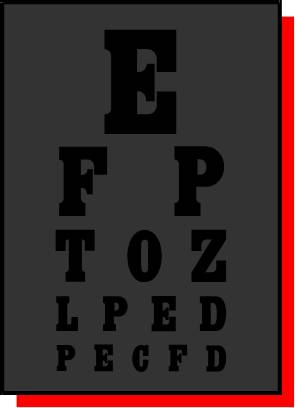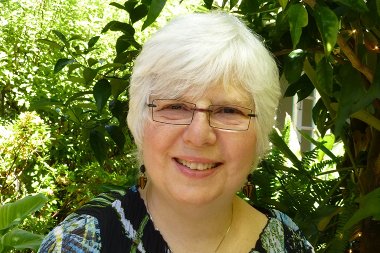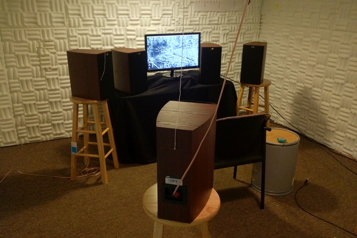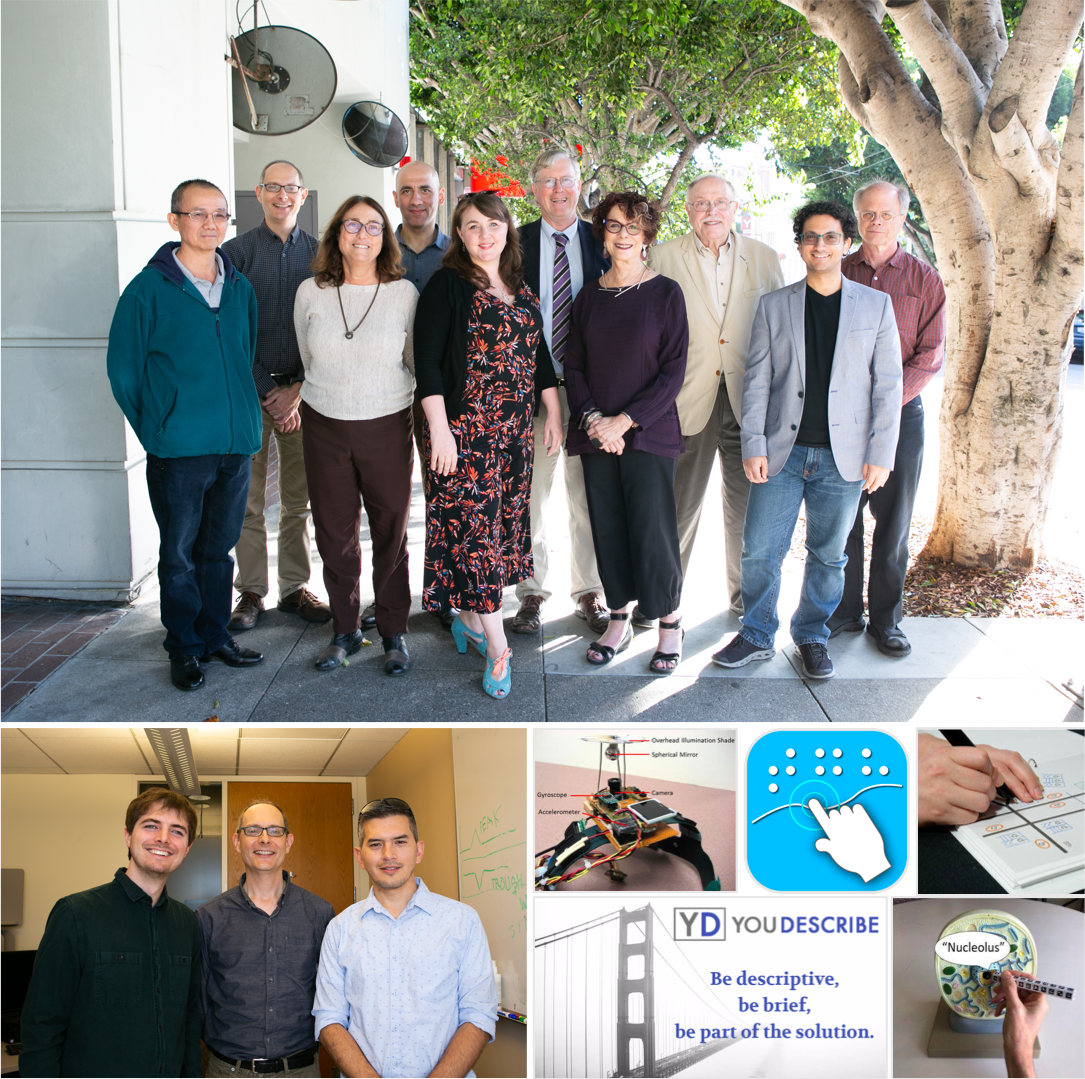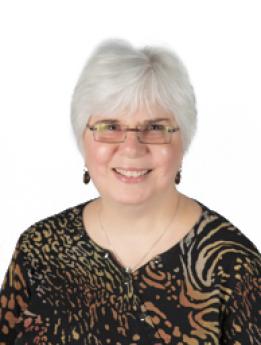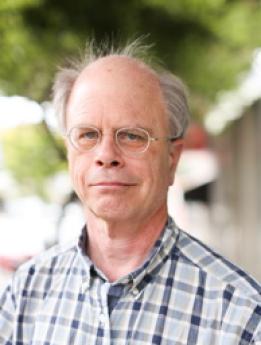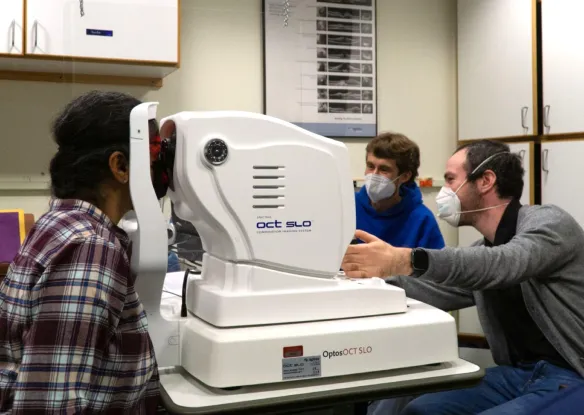My lab is the home for the Rehabilitation Engineering Research Center funded by NIDILRR with additional support from SKERI and other agencies. Together we address problems of blindness and visual impairment, particularly problems faced by our target populaiton that may
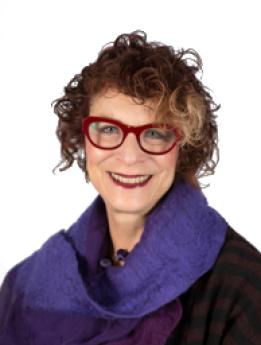
Principal Investigator:
Helen J. SimonBlind travelers rely on subtle acoustic cues for independent mobility. When hearing becomes impaired, as in the normal aging process, a special type of hearing aid may be needed to enhance these cues.
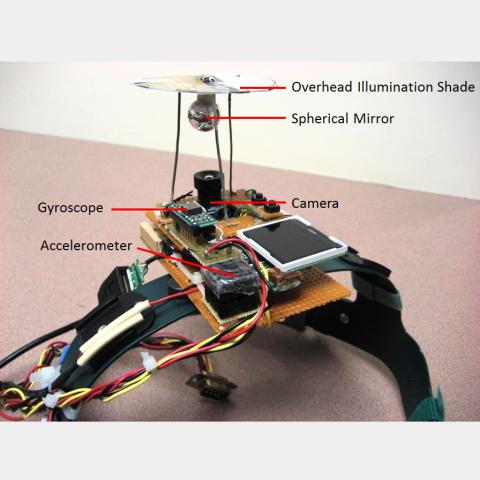
These studies are aimed at analyzing the acoustic properties of the cues used in wayfinding, so that a better idea can be gained of the impact on (and possible remedies for) perception of the various cues when hearing is impaired in different ways.
Novel instrumentation (pictured on this page) was developed by Al Lotze for monitoring the acoustic and optic cues available to a wayfinder. Two sets of sensors are used to monitor acoustic cues. One set of sensors monitors the audio signal reaching the wayfinder’s two ears. An insert microphone is mounted in a small mold that is inserted in the ear canal. The inserted unit also contains a micro-miniature pre-amplifier, the output of which is fed to one of the stereo audio inputs of a wearable computer (a small laptop computer in a wearable harness). When the apparatus is worn, a stereophonic digital recording is obtained of the sounds reaching the wayfinder’s ears. Sensors also monitor head turn and tilt. A novel feature of the apparatus is a 360 degree camera which records video of the surroundings during each experimental session.
Using this apparatus we are making recordings of binaural acoustic cues in different travel settings, enabling us to analyze the spectra of the cues and determine the impact of various types of hearing impairment, so that switchable settings for future hearing aids can be synthesized. (Present-day hearing aids are designed for optimizing speech perception, and their characteristics often suppress environmental cues).
Labs
Gilden Lab
The Gilden Lab conducts research and other activities to acquire new information, create new, devices and develop new strategies to improve the lives of people with low vision or no vision.
Simon Auditory Lab
Scientist Emeritus B.S. Speech Pathology and Audiology Syracuse U M.A. Speech Pathology and Audiology Stanford U Ph.D. Speech and Hearing Science City U of NY The goal of our laboratory is to examine the auditory abilities of people with various degrees of hearing loss
Centers
Rehabilitation Engineering Research Center
The Center’s research goal is to develop and apply new scientific knowledge and practical, cost-effective devices to better understand and address the real-world problems of blind, visually impaired, and deaf-blind consumers. The RERC has many ongoing R&D projects and collaborative
People
Current
Deborah Gilden
PublicationsProjectsCollaborators Publications Journal Articles Projects Collaborators InternalExternal…
Helen J. Simon
PublicationsProjectsCentersCollaborators Publications Journal ArticlesConference PapersPresentations/PostersOther Publications Projects Centers Collaborators InternalExternal…
Collaborators
External
